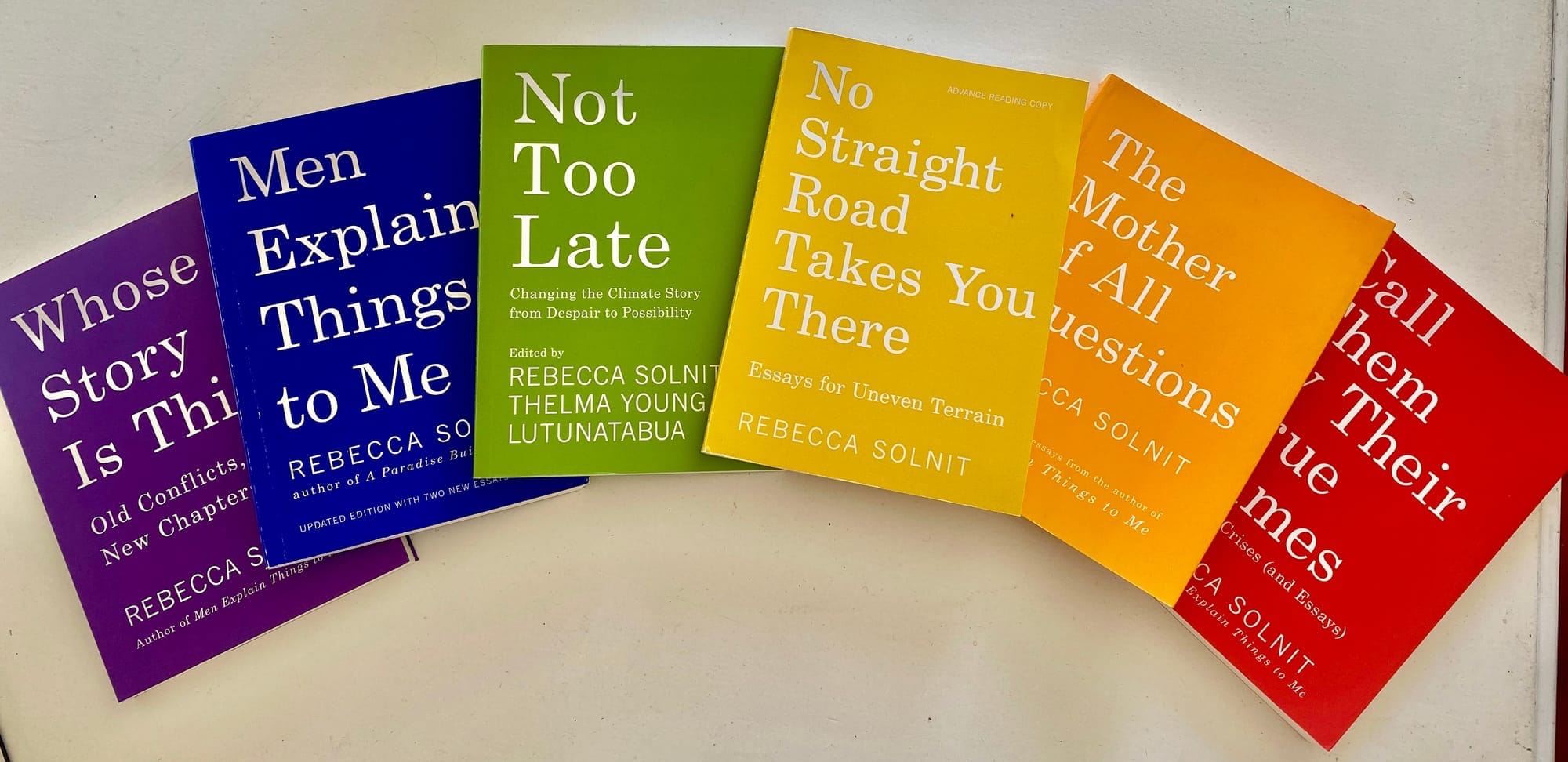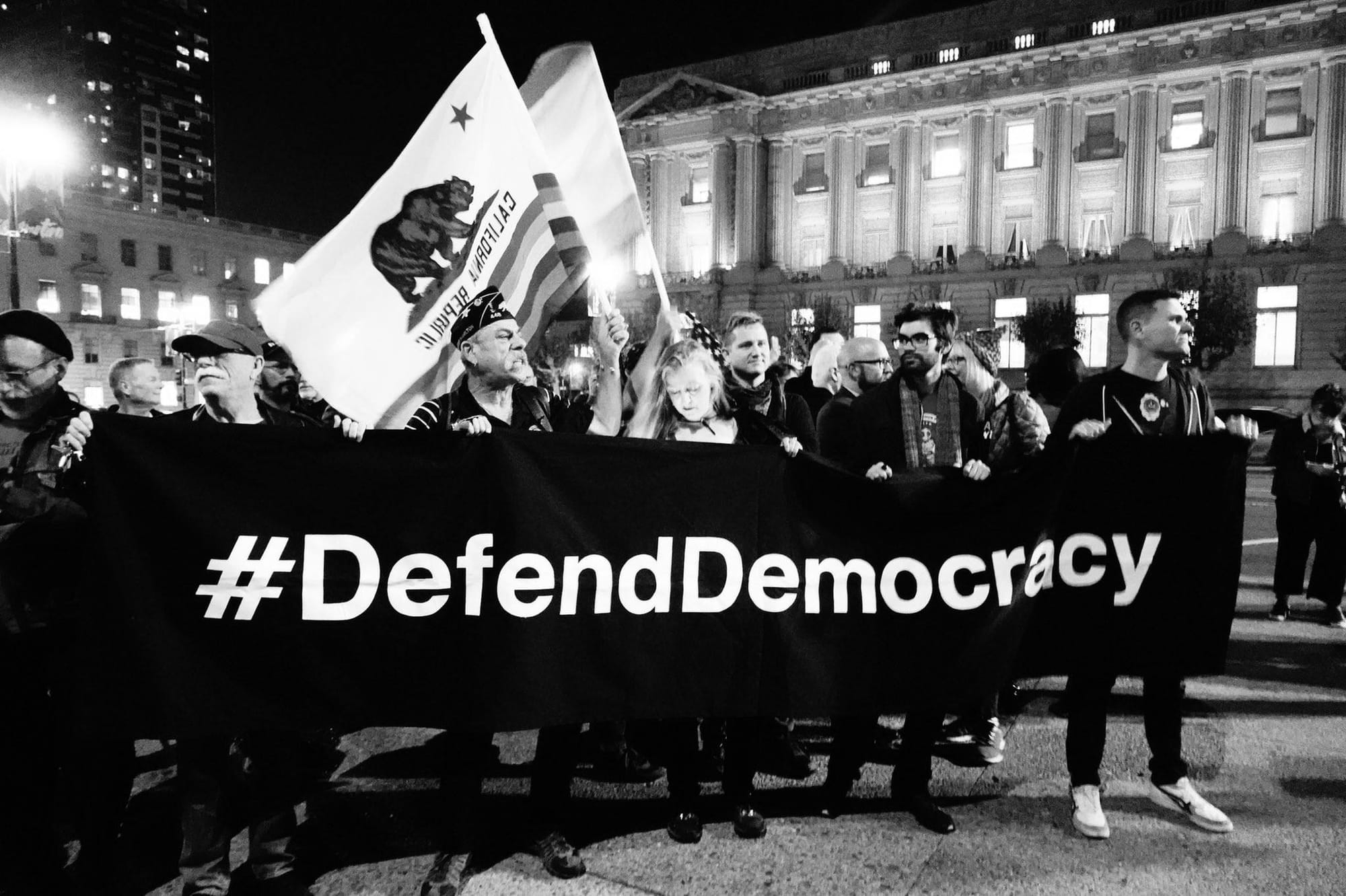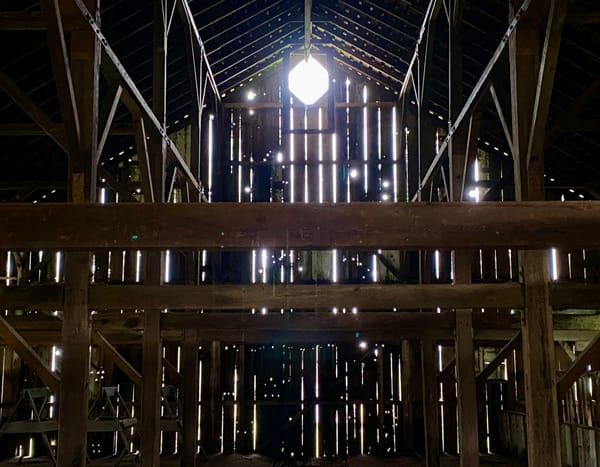THANK YOU SUPPORTERS! Today This Newsletter Is Six Months Old

This is the forty-fifth post since I launched on February 2. It's been a wild ride and a lot of fun and quite thrilling to see so many of you join me (there are a bit over 30k subscribers now). To celebrate I dropped the – strictly optional but really appreciated – paid subscriptions to $5 a month or $50 a year. I am just finishing revisions and endnotes on a book I somehow managed to finish writing while launching this newsletter. Once that's out of the way I'm going to try very hard to stop writing books and just be an essayist here and elsewhere, writing about fighting fascism, climate, the politics of representation and the representation of politics, feminism, and the occasional digressions into beauty, landscape, and epiphany. Plus more interviews! (There's only been one to date, with the brilliant Erica Chenoweth early on.)
A big part of my orientation and maybe my contribution is connecting the dots--trying to see how the things too often reported on piecemeal add up to a big picture, as I did with the recent essays here "Please Shout Fire. This Theater Is Burning" and with "Epstein Is Only the Tip of the Iceberg: The Trump Protection Machine and the Epidemic of Violence Against Women" and earlier with the She Made Him Do It Theory of Everything. There's a way that the news industry does report on the individual pieces, but doesn't provide a coherent overview (but I've also been meaning to say that though I find some of the editorial decisions and biases of mainstream media amount to distortion and even complicity, I rely on the good reporting of a great many journalists who work at these publications; all our political commentary is built atop a foundation of political facts they gather).
Having my own newsletter made me realize early on that my entire publishing life, dating back more than 40 years, I'd always had gatekeepers who decided if a piece would get published, when, and how. Until I launched this, with the skillful help of friends Michael Stack and HR Smith, big thanks to both for getting me through the technical challenges because now I'm also management.
Like many writers I know, I've had a miserable/ frustrating time with the Big East Coast Periodical Media Establishment, whose editors by the way will often commission a piece or accept a pitch, then reject the piece even when it is exactly what was agreed upon, sometimes after it's been held long enough to be obsolete. Or they'll edit a piece into something almost unrecognizable. I used to joke that one of these illustrious publications "loved everything about me but my style and my ideology," because they'd edit until whatever flow the piece had was chopped up into individually good sentences that no longer had any relationship to each other, and some of these places felt free to try to make it either punchier or more aligned with the complacent cynicism that passes as worldly sophistication. Your west-coast idealist and advocate of profound change here just doesn't fit there. I continue to write for the Guardian, which has none of these sins (but generous though the editors there, can't publish everything I want to write).
When it comes to the newsletter boom, I have very mixed feelings about the way Silicon Valley's notion of the next frontier for political writing and journalism is silo'd individuals and I hope someday that we find some good ways to aggregate likeminded writers (not least so we all don't have to subscribe to so many separate things), maybe to reinvent the magazine as a collective rather than individual entityy. I have very unmixed feelings about the fact that this newsletter is hosted on the nonprofit platform Ghost. (The problematic Substack, which is backed by some of the worst people in Silicon Valley, has recurrently shown that it's more than okay with Nazis and other white supremacists, so I was not going to launch there.)
Thank you readers. Thank you subscribers.
p.s. Some things I've been up to elsewhere recently:
Two podcast conversations.
--With the great sister duo adrienne maree brown and Autumn Brown at their How To Survive the End of the World podcast (being on this one was such a great honor because I'm a devoted fan of the podcast and just in awe at how adrienne brings joy, heart, vision to what we need to face right now and how Autumn can sing her part of the conversation):
--A podcast with Bay Area greats Jeff Chang and W. Kamau Bell, which Jeff posted with this quote from me: "We're in a revolutionary moment where, in a way we haven't, in 250 years, we're gonna make the future of this country with how we show up, whether we show up, who shows up, what the vision is, how it's communicated. So it's very much an emergency that calls forth everyone.” They're both heroes of mine and favorite voices, so this was a very exciting conversation (and yeah, I was trying to be about 3/17th as funny as Mr. Bell).....
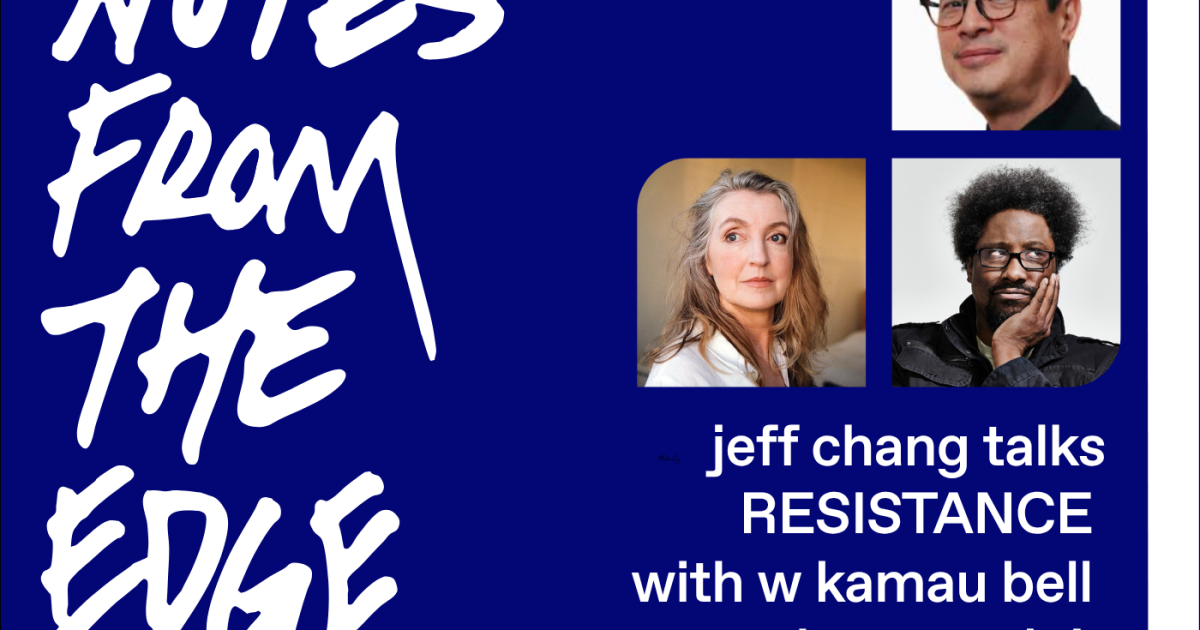
-- A piece on climate and the renewables revolution in the Guardian: " "renewables are now adequate to meet almost all our needs, as experts like Australia’s Saul Griffiths and California’s Mark Z Jacobson have mapped out. Simply because it’s cheaper, better and ultimately more reliable, the transition is inevitable – but if we do it fast, we stabilize the climate and limit the destruction, and if we don’t, we don’t. Almost no one has summed up how huge the shifts are since the year 2000, but the Rocky Mountain Institute has done that for the last decade, during which, they tell us: “clean-tech costs have fallen by up to 80%, while investment is up nearly tenfold and solar generation has risen twelvefold. Electricity has become the largest source of useful energy, and the deep force of efficiency has reduced energy demand by a fifth.” Estimates for the future price of solar have almost always been overestimates; estimates for the implementation of solar have been underestimates."
-- An essay on for my friend and longtime collaborator Richard Misrach's new book of photographs Cargo, which is made up of images of cargo ships in San Francisco Bay, a provocative mix of sublime beauty and the questions global capitalism and consumerism raise. It begins: "Phenomena that appear blue at one time will at others look orange or golden or gray or black as light and weather shift, because color is not inherent in land or water or sky, but an interaction between light and surface, because change is the one constant, because there is a rhythm of light that, like the tides, comes and goes daily. Ships that appear on the water may themselves be coming or going, may be carrying products for import or export, may belong to global conglomerates or oil corporations, may have been on the open ocean for weeks before they came into the San Francisco Bay. Some are fossil fuel tankers, more are cargo ships. The word cargo, meaning burden or load, was itself exported from Spanish to English in the seventeenth century." In October, Richard and I will be in conversation at City Arts and Lectures, undoubtedly talking together about beauty, horror, representation, invisibility, the bay, the global shipping industry, climate...
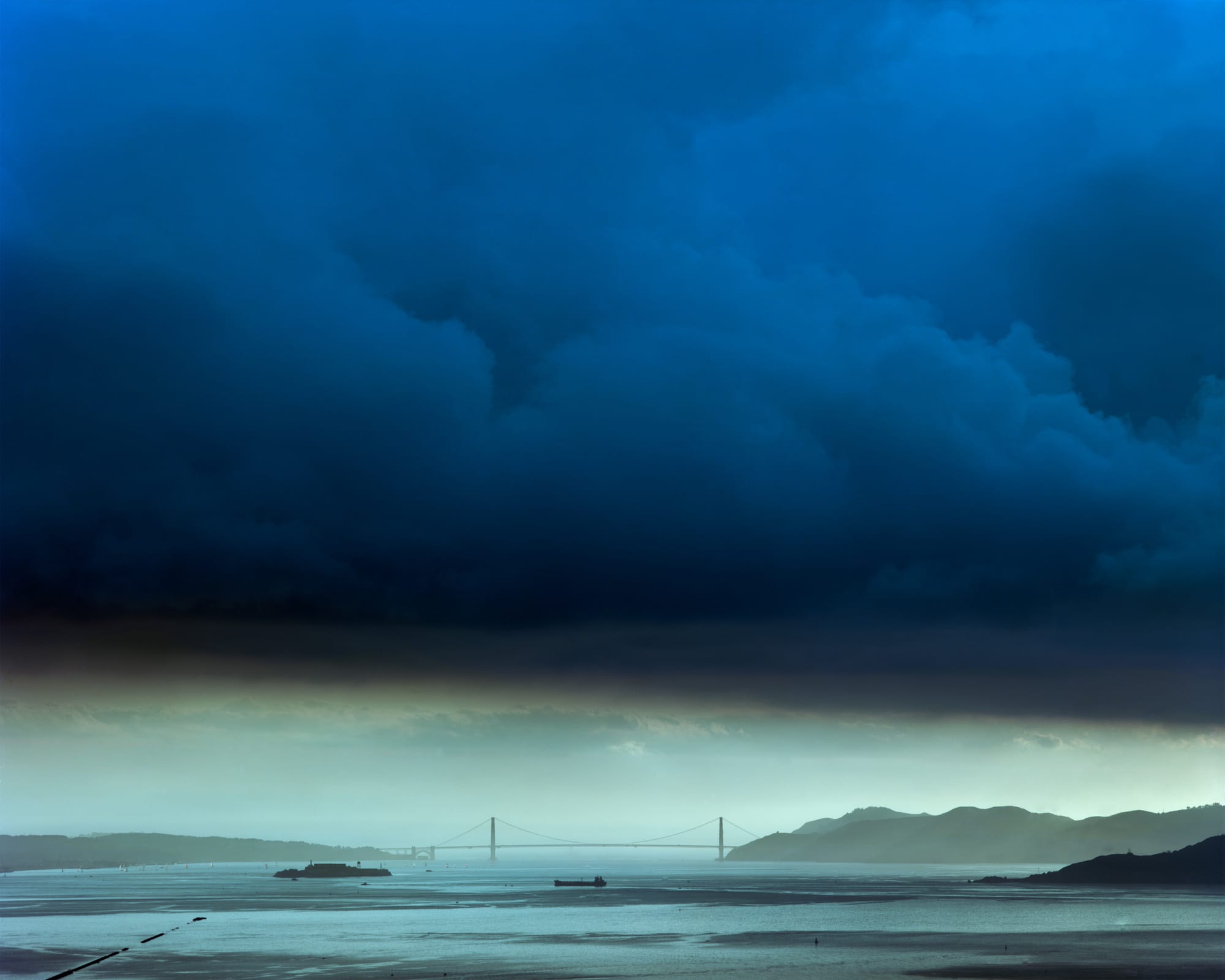
--An older piece on Epstein that seems all too topical now made the rounds again: "In Patriarchy No One Can Hear You Scream: Rebecca Solnit on Jeffrey Epstein and the Silencing Machine." I wrote in 2019: "Monsters rule over us, on behalf of monsters. Now, when I think about what happened with Strauss-Kahn, who was subsequently accused of sexual assault by several other women, and with cases like his, it’s the secondary characters who seem to matter most. These men could not do with they did without a culture—lawyers, journalists, judges, friends—that protected them, valued them, devalued their victims and survivors. They do not act alone, and their might is nothing more or less than the way a system rewards and protects them, which is another definition of rape culture. That is, their impunity is not inherent; it’s something the society grants them and can take away."
--One of many critiques of media and interpretation I've written in recent years, this one in the Guardian on how the National Weather Service got blamed by insinuations and misinformation in relation to the Texas floods: "Many of them found confirmation in a New York Times story that ran with the sub-headline: “Some experts say staff shortages might have complicated forecasters’ ability to coordinate responses with local emergency management officials.” Might have is not “did”. Complicated is not “failed”. It’s a speculative piece easily mistaken for a report, and its opening sentence is: “Crucial positions at the local offices of the National Weather Service were unfilled as severe rainfall inundated parts of Central Texas on Friday morning, prompting some experts to question whether staffing shortages made it harder for the forecasting agency to coordinate with local emergency managers as floodwaters rose.” A casual reader could come away thinking that staffing shortages had had consequences. But if you give the airily innuendo-packed sentence more attention, you might want to ask who exactly the anonymous experts were and whether there’s an answer to their questions. Did it actually make it harder, and did they actually manage to do this thing even though it was harder, or not? Did they coordinate with local emergency managers?"
--In May, I launched the yellow book that completed this rainbow of books with Haymarket Books, speaking of wonderful publishers (and I'm ridiculously pleased to have made this rainbow over eleven years and six books in what I like to call the world's slowest gesture of queer solidarity, and one I hope bookstores in conservative places will use to plant some casual rainbows here and there). The book I finished this spring will be part of this series (but the first one that's a single text, not an essay collection) and we're pondering what color to make it. They're all 40% off, along with everything else at Haymarket, at: https://www.haymarketbooks.org
